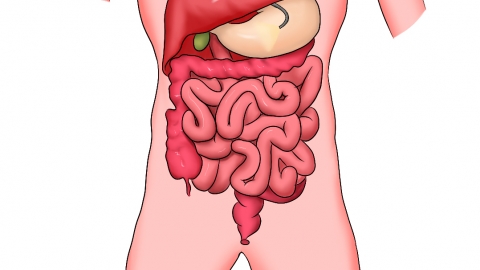How to treat gastrointestinal dysfunction
Under normal circumstances, gastrointestinal dysfunction can easily lead to diseases such as functional dyspepsia, irritable bowel syndrome, acute gastroenteritis, gastroesophageal reflux disease (GERD), and pyloric obstruction. Patients can choose medication or surgical treatments according to their specific conditions to improve symptoms. A detailed explanation is as follows:
1. Functional Dyspepsia
Slowed gastrointestinal motility and insufficient secretion of digestive enzymes lead to impaired digestion and absorption of food, causing symptoms such as upper abdominal fullness, postprandial bloating, and belching. Patients should adjust their diet, avoid overeating, and reduce the intake of greasy and spicy foods. Under a doctor's guidance, medications such as domperidone tablets, compound digestive enzyme capsules, and lactase tablets can be used to enhance gastrointestinal motility, supplement digestive enzymes, and improve digestive function.

2. Irritable Bowel Syndrome
Increased intestinal sensitivity and dysbiosis can cause abdominal pain, diarrhea, or constipation, with symptoms often related to emotional fluctuations. Patients should maintain emotional stability and avoid anxiety and tension. Dietary adjustments should include reducing gas-producing foods. Under a doctor's guidance, medications such as pinaverium bromide tablets, bifidobacterium triple viable capsules, and montmorillonite powder can be used to regulate intestinal motility, improve gut flora, and alleviate diarrhea or abdominal pain.
3. Acute Gastroenteritis
Consumption of contaminated food can lead to bacterial or viral infection of the gastrointestinal mucosa, resulting in nausea, vomiting, abdominal pain, and diarrhea. Temporary fasting or a bland diet may be necessary, along with adequate hydration to prevent dehydration. Under a doctor's guidance, medications such as norfloxacin capsules, berberine hydrochloride tablets, and oral rehydration salts III can be used to combat infection, alleviate diarrhea, replenish electrolytes, and promote the repair of the gastrointestinal mucosa.
4. Gastroesophageal Reflux Disease (GERD)
Weakened function of the lower esophageal sphincter allows stomach contents to reflux into the esophagus, causing heartburn, acid regurgitation, and retrosternal discomfort. Patients should avoid lying down immediately after meals and reduce consumption of coffee and sweets. Under a doctor's guidance, medications such as omeprazole enteric-coated capsules, hydrotalcid chewable tablets, and mosapride tablets can be used to inhibit gastric acid secretion, protect the esophageal mucosa, and promote gastric emptying, thereby reducing reflux symptoms.
5. Pyloric Obstruction
Inflammation or scarring from ulcers at the pylorus can cause narrowing, obstructing the outflow of gastric contents and leading to symptoms such as vomiting of undigested food and upper abdominal pain. This is a rare pathological condition. Mild cases may be treated under a doctor's guidance with intravenous omeprazole sodium and ceftriaxone sodium injections to control inflammation and reduce gastric acid secretion. Severe cases may require laparoscopic pyloroplasty or gastrojejunostomy to restore normal gastric outflow.
In daily life, attention should be paid to food hygiene to avoid consuming contaminated food; meals should be taken regularly to avoid excessive hunger or overeating; maintain regular sleep patterns and avoid staying up late; engage in appropriate physical activity to promote gastrointestinal motility; and undergo regular gastrointestinal examinations to monitor gastrointestinal health.








